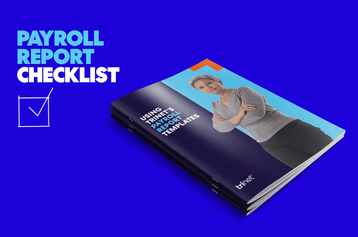Is it ok to request W2's from an employee to verify their income before extending them a job offer?

Table of contents
- 1.What you need to know about W2 Employment Verification
- 2.State Laws
- 3.Further Risks Involved
- 4.Sensitive Information
- 5.Conclusion
- 6.Helpful Links:
What you need to know about W2 Employment Verification
Technically, requesting a W-2 from a job applicant isn't prohibited, but it raises potential issues that you should consider carefully before taking said action. Moreover, this request can have a substantial negative effect on applicants, who are likely to consider it inappropriate and intrusive.
State Laws
Although no federal codes prohibit employers from requesting a W-2, some states have laws that either forbid the practice or forbid basing employment decisions on information you might find in the W-2. In Rhode Island, for example, employers are prohibited from requesting a W-2 or related tax document. Be sure to check your own state's laws before requesting any tax information.
Further Risks Involved
Requesting tax information from one or more applicants but not all applicants leaves you open to potential discrimination charges. Tax forms disclose information that could be related to an applicant's EEOC protected characteristics. For example, sick pay could give away that an employee has a health problem. If you base your hiring decision on this fact, the applicant could have grounds for discrimination. Tax forms also state the employee's previous annual salary and if the employer uses this information to determine their future salary, then they could face potential discrimination charges under the Equal Pay Act. Instead, employers should base the employee's pay on the job performed. If the job requires substantially equal skill, effort, and responsibility under similar working conditions, then they need to pay both men and women an equal salary. Tax forms could also reveal that an applicant is unemployed, which in certain states, like New York, is a protected trait when it comes to hiring. Finally, some applicants may see this request as overly intrusive and not want to move ahead with the interview process.
Sensitive Information
Because W-2s contain private information such as an applicant's social security number, collecting one could have accidental consequences if it's improperly handled. If you do request a W-2, be sure to handle the document and its information carefully, and to dispose of it properly. A few tips for protecting your applicant's information include:
- Asking them to redact their social security number before giving you the W-2
- Enforce procedures for proper handling and disposal of the documents
- Limit access to the documents. For example, if possible, only the hiring manager should see it
If using electronic documents, ensure that your computer is secure and only accessible by those who need to see the W-2. Better yet, consider handling the hiring and employee onboarding process with an all in one HR tool like TriNet.
Conclusion
In some states, you may ask an applicant for their W-2, but if it isn't part of your company's established policy then it is much safer to avoid it. If you wish to seek this information, you will need to very carefully evaluate the potential effect it will have in driving away candidates, and if you do collect the information, your usage of the information should be carefully monitored with legal counsel's input where relevant.
Helpful Links:
Prospective Employers Asking for W2s - payscale.com - An overview of the issues involved in asking for W-2 forms
State Labor Laws - DOL.gov - A list of state labor laws you can use to check if your state has anything particular on W-2s

Lora Patterson
Table of contents
- 1.What you need to know about W2 Employment Verification
- 2.State Laws
- 3.Further Risks Involved
- 4.Sensitive Information
- 5.Conclusion
- 6.Helpful Links:






